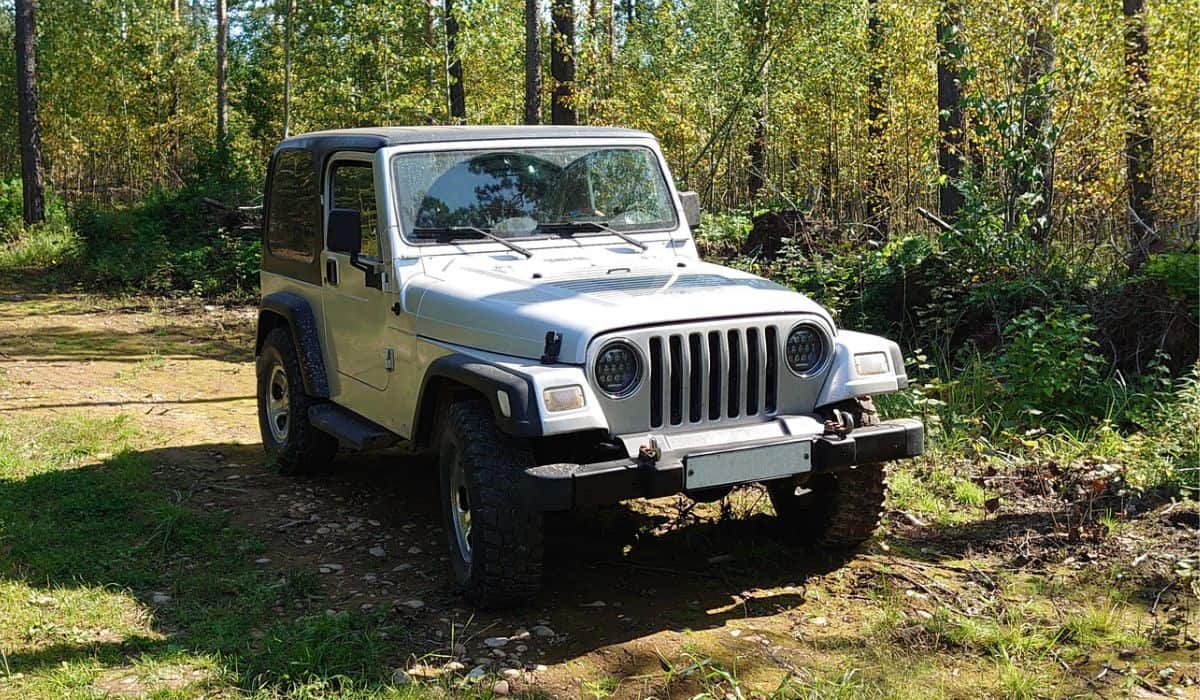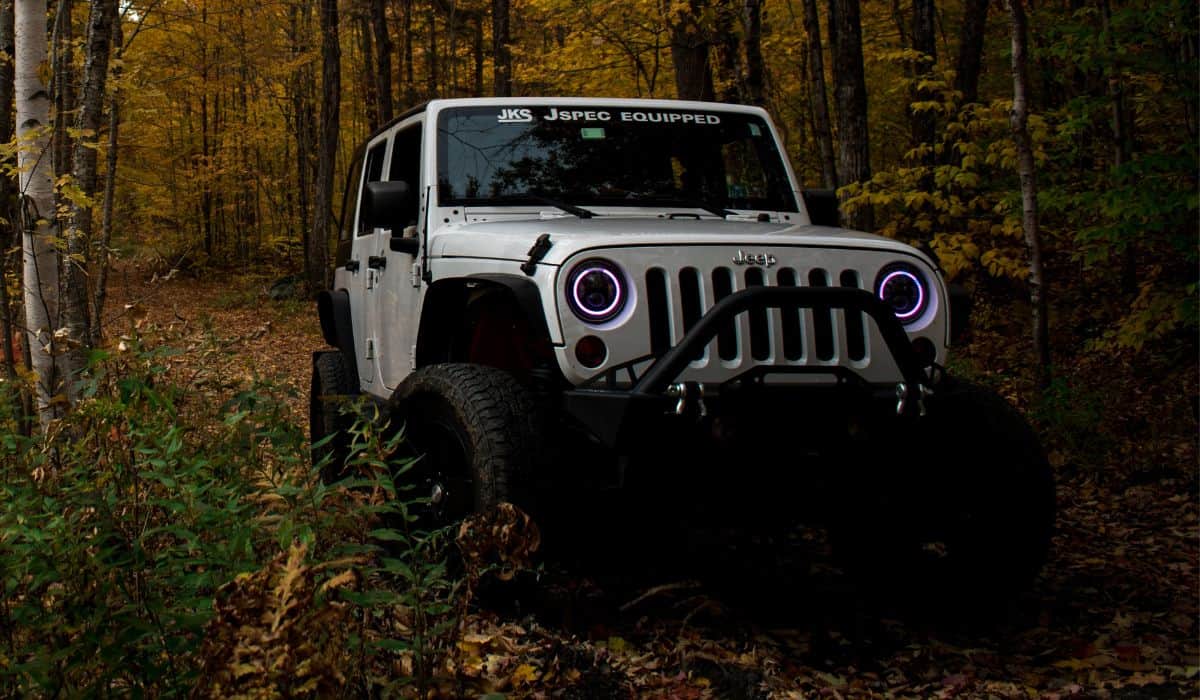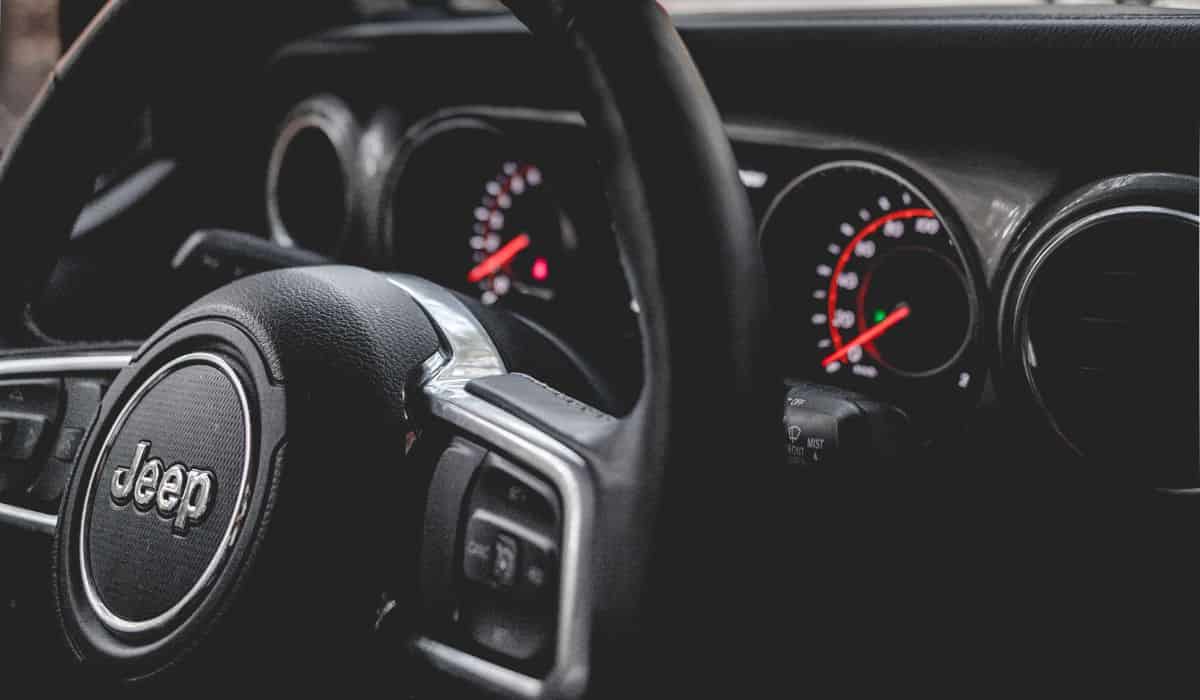Reasons Your Jeep Wrangler Is Overheating (Plus Troubleshooting Tips)
Jeep Wranglers are well known for their reliability and durability when driving on or off the road. However, you may find that your Jeep Wrangler has overheated but may not be sure what is causing it.
If your Jeep Wrangler is suddenly overheating more than it should be, this could be caused by low fluid levels, a malfunctioning water pump, a clogged radiator, or something else. You’ll want to pull over as soon as possible so you can troubleshoot your problem.
Knowing what could be causing your Jeep Wrangler to overheat can help you to understand how to fix it. Let’s look at some common causes of overheating so you can move on to figuring out what to do.
Why is My Jeep Wrangler Overheating?

You may be wondering what is causing the sudden overheating of your Jeep Wrangler, especially if it recently started. Finding out what is causing it is the key to figuring out what you can do to get it fixed.
Low Fluid Levels
One of the first things you should check if your Jeep overheats are the fluid levels under the hood. When the coolant or oil levels get too low, it can cause your engine to work harder than it should.
The oil in the engine keeps your Jeep Wrangler functioning properly and goes a long way to keep it cool. However, when the oil level gets low or empty, the mechanisms in the engine do not have enough lubrication to keep running smoothly.
The coolant level is similar in that it helps to keep your Wrangler engine cool and running efficiently for the long haul. However, if the coolant level gets too low, it can cause your engine to overheat.
Malfunctioning Water Pump
Another issue that can cause your Jeep Wrangler to overheat is a malfunction of the water pump. Since the water pump is the mechanism that controls the cooling system, when it becomes damaged, your engine can overheat.
Since the water pump controls the coolant, the flow is affected when something goes wrong with the pump. Factors that can cause the water pump to malfunction include corrosion or age.
The water pump is a part of the engine that is not designed to have an indefinite life. Therefore, it can fail at any time. When this occurs, your Jeep Wrangler engine will overheat, which can lead to more severe problems if not fixed.
Clogged Radiator or Fins
The radiator on your Jeep Wrangler acts as the temperature control for the overall engine and works to keep things running smoothly. Unfortunately, when something goes wrong with the radiator, the temperature in the engine is no longer controlled.
When the radiator works correctly, the fins and tubes connected to it will also work efficiently to keep the engine’s temperature moderate. However, there are times when the radiator can malfunction, especially when it has aged.
Having your Jeep Wrangler regularly serviced is vital since this is one of the checked features. If you neglect to get regular maintenance, however, the radiator, fins, and tubes can become clogged and stop working correctly, causing your engine to overheat.
Damaged Thermostat
One of the more severe problems that can occur if you find your Jeep Wrangler engine overheating is the thermostat could be damaged. In most cases, this means the temperature in the engine cannot be regulated, so it will overheat.
Like the water pump, the thermostat is not made to last indefinitely since its job is to turn off and on to control the coolant pushed through the engine.
Since the thermostat only opens up when the vehicle is running, its main job is to help the radiator to control the temperature.
If you have had your Jeep Wrangler for some time, you may keep a watch to see if your vehicle is overheating more than it should. If this is the case, you may need to replace the thermostat to keep your Jeep running effectively.
Blocked Air Flow in the Coolant System
Issues with the airflow in the cooling system can be another reason your Jeep Wrangler is overheating. In most cases, the cause for this could be the lack of coolant in the engine that, in turn, causes the water pump to work improperly, causing air pockets to be pushed into the cooling system.
Over time, this issue can cause more problems than just your engine overheating, leading to more expensive repairs. The cooling system is controlled by the pressure that is maintained by steady pressure.
If the radiator cap comes loose or other issues occur in your engine, this can cause the pressure to release. The entire cooling system will shut down when this happens, causing the Wrangler’s engine to overheat.
What to Do if Your Jeep Wrangler is Overheating

If you happen to be driving your Jeep Wrangler when it begins to overheat, there are several things you can and should do to prevent the problem from getting worse. While many of these tips are common sense, it is vital to keep them in the forefront of your mind, just in case.
Here are some tips that you should follow if your Jeep Wrangler overheats:
- Pull over and shut off the engine as soon as possible.
- Try a few quick fixes if you are handy and feel comfortable doing so.
- Keep specific tools on hand to help you diagnose the problem.
- Have extra coolant that you can add once the engine has cooled down for about 30 minutes.
- Use the coolant or water to flush the radiator to ensure no leaks.
- Call for help if needed.
While these are only a few of the most common tips you should keep in mind, they may save you some time and money in the long run.
What NOT to Do if Your Jeep is Overheating
Even though there are certain things you can do if your Jeep is overheating, there are also things that you should never do in this situation. Learning and adhering to these tips can keep you and your passengers safe from anything that could go wrong.
Here are some tips on what you should NOT do if your Jeep is overheating:
- Wait for your engine to cool completely before opening the hood of your vehicle.
- Resist the temptation of pushing your Jeep to a nearby gas station.
- You should never add cold water to the radiator if it is still hot; doing so can cause irreparable damage to your radiator.
- Most importantly, do not dismiss the problem, thinking it will disappear.
Just like the tips, you should do if your Jeep is overheating, adhering to these tips on what not to do is equally as important. This is because if you do any of the above-listed things, you can cause damage to yourself and your Jeep Wrangler.
What are the Signs of Thermostat Failure in a Jeep Wrangler?

As you go through the list of possible causes for your Jeep Wrangler to overheat, you should look for specific signs that your thermostat is failing. The thermostat is not meant to last a long time and may have to be replaced at some point.
Certain signs will indicate that your thermostat is failing in a Jeep Wrangler if you know what to look for. Knowing these symptoms can help you diagnose the overheating issue before it becomes a bigger problem.
Here are some of the symptoms you should look for:
- Odd noises are coming from the engine.
- Using more fuel than usual.
- The engine is not running as smoothly as it should.
- Temperature readings are higher than average.
If you are experiencing any of these problems, it may be time to replace the thermostat on your Jeep Wrangler. In most cases, changing out the thermostat is something you can do without much effort overall.
Can I Fix Overheating Issues Myself?
Depending on how handy you are and how much knowledge you have about engines, you may be able to fix the overheating issues yourself. But when dealing with a vehicle’s engine, you must use caution.
Luckily, many videos and instruction guides are available on the internet to help you make many of the repairs yourself if you feel comfortable. But before making any repairs yourself, you should always check your owner’s manual or the manufacturer’s website.
There are many things you can try before going the route of hiring a professional to look at your Jeep Wrangler. Some of these include checking the coolant levels and adding fluid if needed, changing the thermostat, adding additional oil, and a few other things.
Overall, these minor repairs can be done without much knowledge and can be done in a matter of minutes. However, if these fixes do not help, you will need to consider your next steps.
When to Take Your Jeep Wrangler to a Professional
After you have tried some DIY fixes for your Jeep Wrangler’s overheating issue, you may need to call in a professional. This typically occurs when the problem cannot be resolved by yourself.
Remember that your owner’s manual will most likely tell you when you may be able to repair it or when it is time to call in a professional. In addition, the many videos and guides on the internet can also be of great help when determining whether or not it needs professional assistance.
Final Thoughts on Reasons Your Jeep Wrangler is Overheating
At the end of the day, it is crucial to be familiar with why your Jeep Wrangler is overheating.
Knowing what could be causing the issue can go a long way to ensuring that it gets repaired without costing you a lot of money down the road.
